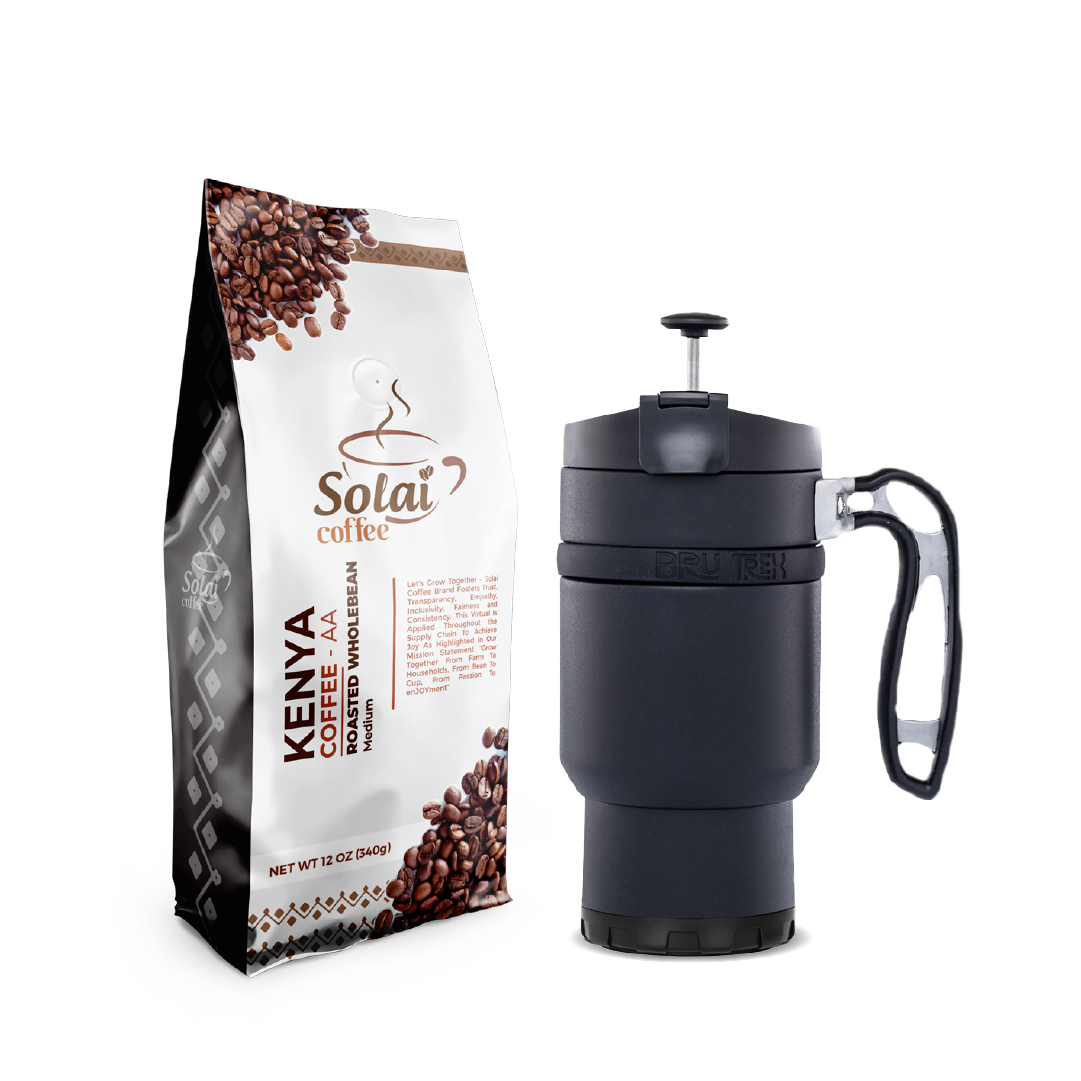We all love our morning brew—that caffeine kick from extra Espresso that gets us buzzing and ready to tackle the day ahead. But have you ever felt like that extra jolt of espresso hit you harder than you expected?
That's because of caffeine, a powerful stimulant in our beloved cup of joe.
While this compound enhances alertness and mental focus in moderation, when consumed in excessive amounts, it can lead to a condition known as caffeine intoxication or caffeinism.
So what is coffee intoxication, what are the symptoms, and how can coffee aficionados navigate their caffeine intake for optimal enjoyment and well-being?
Subscribe now and experience the perfect blend of quality and convenience delivered right to your doorstep with Solai coffee beans

Caffeine Intoxication
Caffeine intoxication, also known as caffeinism, occurs when an individual consumes excessive amounts of caffeine. Caffeine compounds are not only in coffee but also in various sources such as tea, chocolate, energy drinks, and medications.
This condition can result in a spectrum of physical and mental symptoms, including restlessness, rapid heartbeat, insomnia, and, in severe cases, hallucinations or seizures.
Interestingly,
While coffee is often associated with caffeine intake, research indicates that medical prescriptions and dietary supplements are more common culprits of caffeine intoxication, with instances of coffee caffeine overdose remaining relatively rare.
Who is more likely to suffer a caffeine overdose?
Did you know that just 100 milligrams of caffeine, roughly the amount in a single cup of coffee, can produce noticeable effects in most people? Now imagine the consequences of consuming far beyond that amount.
According to Guy Mintz, MD, of Northwell Health Sandra Atlas Bass Heart Hospital in Manhasset, New York Gen Z and children are particularly vulnerable to caffeine overdose than older people due to their lower body weight and limited ability to metabolize caffeine efficiently.What might be a moderate intake for an adult could easily tip into dangerous territory for a younger individual.

What are the Symptoms of Coffee Intoxication?
Coffee is a lifestyle with health benefits, and to coffee lovers, it is a must-have to jumpstart the day. Moderately drinking your favorite brew improves physical performance, reducing fatigue, sleep, and drowsiness. However, too much of something is poisonous.
The Diagnostic and Statistical Manual of Mental Disorders describes caffeine intoxication as an abnormal (excessive) stimulation of the CNS after a recent caffeine intake.
A user can attain caffeine intoxication or caffeinism when they consume about 1-1.5 grams of caffeine in one sitting.
A patient qualifies for the diagnosis if they display at least 6 out of a possible 12 symptoms of caffeine intoxication during or after a recent intake of the drug.
Low-Dose Symptoms of Coffee Intoxication
Insomnia
Excitement
Flushed face
Increased urination (Diuresis)
Restlessness
Nervousness
Gastrointestinal disturbance
High-Dose Symptoms of Coffee Intoxication
Spells of inexhaustibility
Cardiac arrhythmia and tachycardia
Muscle twitching
Psychomotor agitation
Loss of appetite
Rumbling flow of speech and thought
Rumbling flow of speech and thought
Risk Factors of Caffeine Overdose
If you are a coffee head, you will likely ingest well above your daily dose without any cause for alarm.
However, consuming high levels of caffeine is not recommendable, as high doses can offset health issues, including seizures and irregular heartbeat.
Habitual consumption of caffeine in high dosage can also lead to hormonal imbalance, a condition that can further deter normal body reactions and offset medical complications.
Many people ask, How much caffeine should you consume?
According to Mayo Clinic guidelines, moderate caffeine consumption is typically equivalent to 2 to 3 cups of coffee daily or 400mg at most.
Monitoring intake and heeding one's body signals are pivotal in avoiding caffeine-related complications.
How do you Recover from too much caffeine?
Did you know a cup of coffee takes approximately four hours to clear out from your system?
In the event of a caffeine overdose,
- Employing relaxation techniques like brisk walking or stretching can help disperse excess energy and promote relaxation.
- Taking lots of water to stay hydrated can aid in alleviating symptoms.
- Seeking medical advice is advisable if symptoms persist or worsen severely.
Essentially, you will be flashing out all the unwanted energy you bottled up!
Takeaways
For coffee lovers, a cup of joe is something to look forward to daily. It tastes excellent, enhances alertness, and has health benefits.
However, it's essential to approach caffeine consumption with mindfulness and moderation.
By understanding the nuances of caffeine intoxication, enthusiasts can savor their favorite brews while safeguarding their well-being.
Related article Is Coffee Diuretic?
Experience the convenience and quality of Solai coffee today - perfect for enjoying a flavorful brew on all your adventures.
Caffeinism: Can Coffee Intoxicate You?